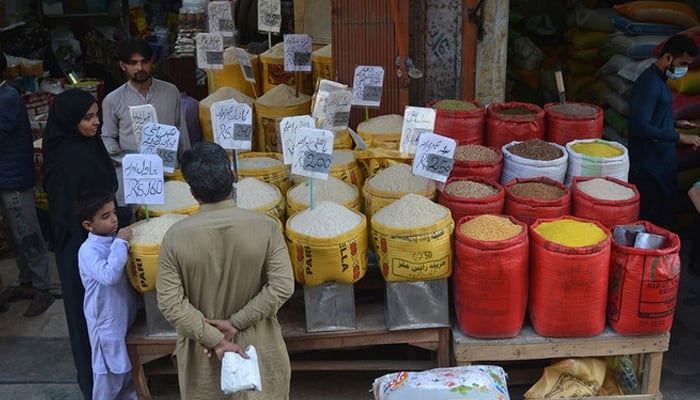Economic downturn
LAHORE: The institutions in developed economies ensure that serious social conflicts and protest strikes remain peaceful, while political or economic distress in Pakistan creates social ripples.
The credit for peace and harmony in developed economies is due to transparent and lawful handling of all affairs by their relevant institutions. These institutions conduct fair elections, they have responsive democratic legislatures, and an effective judiciary. All these institutions have successfully tackled political conflict in developed economies in times of distress.
Unfortunately, this is not so in Pakistan. Our institutions lack maturity, and some are so weak that they have become dysfunctional. Some even use the power vested in them for personal gain or to settle personal issues, of which police high-handedness is an open secret.
There is no doubt that a downturn in the economy exposes hidden or underlying social tensions. It is in human psychology to show the softer side when the benefits of growth are available, but in case of scarcity, it is difficult to share the burdens of adversity.
A person accustomed to consumption finds it extremely hard to reduce it when the income declines and might resort to fighting when he is forced to consume less. However, when one is doing well, fighting for more resources is less important. In case of acceptable growth, people think that the conflict may destroy growth opportunities, people avoid unrest when the growth is strong.
Credible research has shown that years of weak economic growth precede civil war in poor countries. Even after establishing peace, the probability that these countries will relapse into conflict is high. Years of weak growth in Pakistan have created the same situation that needs to be handled prudently.
To achieve this, we need strong institutions. Countries where the institutions are operating well minimize the burden of distress through explicit and transparent social safety networks, which also includes free health and education facilities. In Pakistan, failing companies continue to operate as lawful closure is not available.
During failure periods, they add huge liabilities of unpaid workers that trigger violence. In developed economies, entrepreneurs in trouble can file bankruptcy. In developed economies, an explicit institutional mechanism is in place to dictate the division of pain so the affected people have no need to go for violent protests.
Pakistani institutions are too weak to offer predictable and acceptable settlements, or to distribute the leftovers fairly among all stakeholders. Everyone then fights for a larger slice of the pie. This results in strikes, lockouts, and even violent conflict which hurt the interests of all.
Labor contracts in Pakistan prohibit employers from firing workers. It deprives the firms of adjusting quickly to changing business conditions. But in reality, firms fire workers unlawfully, forcing the workers to seek legal remedy. Unfortunately, slow court procedures mean that a worker who is wrongfully dismissed has no legal recourse. The aggrieved workers resort to mass protests against violations, which are easily and publicly observable.
They see it as the only way to protect workers from arbitrary decisions by employers. This calls for an inflexible contract to protect workers when the hold of bargaining power is with firms.As an alternative, the firms run their processes by hiring informal workers who have no rights. They pay inspectors to look the other way. Such irregularities would continue until we strengthen our institutions.
-
 Funeral Home Owner Sentenced To 40 Years For Selling Corpses, Faking Ashes
Funeral Home Owner Sentenced To 40 Years For Selling Corpses, Faking Ashes -
 Why Is Thor Portrayed Differently In Marvel Movies?
Why Is Thor Portrayed Differently In Marvel Movies? -
 Dutch Seismologist Hints At 'surprise’ Quake In Coming Days
Dutch Seismologist Hints At 'surprise’ Quake In Coming Days -
 Australia’s Liberal-National Coalition Reunites After Brief Split Over Hate Laws
Australia’s Liberal-National Coalition Reunites After Brief Split Over Hate Laws -
 DC Director Gives Hopeful Message As Questions Raised Over 'Blue Beetle's Future
DC Director Gives Hopeful Message As Questions Raised Over 'Blue Beetle's Future -
 King Charles New Plans For Andrew In Norfolk Exposed
King Charles New Plans For Andrew In Norfolk Exposed -
 What You Need To Know About Ischemic Stroke
What You Need To Know About Ischemic Stroke -
 Shocking Reason Behind Type 2 Diabetes Revealed By Scientists
Shocking Reason Behind Type 2 Diabetes Revealed By Scientists -
 SpaceX Cleared For NASA Crew-12 Launch After Falcon 9 Review
SpaceX Cleared For NASA Crew-12 Launch After Falcon 9 Review -
 Meghan Markle Gives Old Hollywood Vibes In New Photos At Glitzy Event
Meghan Markle Gives Old Hollywood Vibes In New Photos At Glitzy Event -
 Simple 'finger Test' Unveils Lung Cancer Diagnosis
Simple 'finger Test' Unveils Lung Cancer Diagnosis -
 Groundbreaking Treatment For Sepsis Emerges In New Study
Groundbreaking Treatment For Sepsis Emerges In New Study -
 Roblox Blocked In Egypt Sparks Debate Over Child Safety And Digital Access
Roblox Blocked In Egypt Sparks Debate Over Child Safety And Digital Access -
 Savannah Guthrie Addresses Ransom Demands Made By Her Mother Nancy's Kidnappers
Savannah Guthrie Addresses Ransom Demands Made By Her Mother Nancy's Kidnappers -
 OpenAI Reportedly Working On AI-powered Earbuds As First Hardware Product
OpenAI Reportedly Working On AI-powered Earbuds As First Hardware Product -
 Andrew, Sarah Ferguson Refuse King Charles Request: 'Raising Eyebrows Inside Palace'
Andrew, Sarah Ferguson Refuse King Charles Request: 'Raising Eyebrows Inside Palace'




